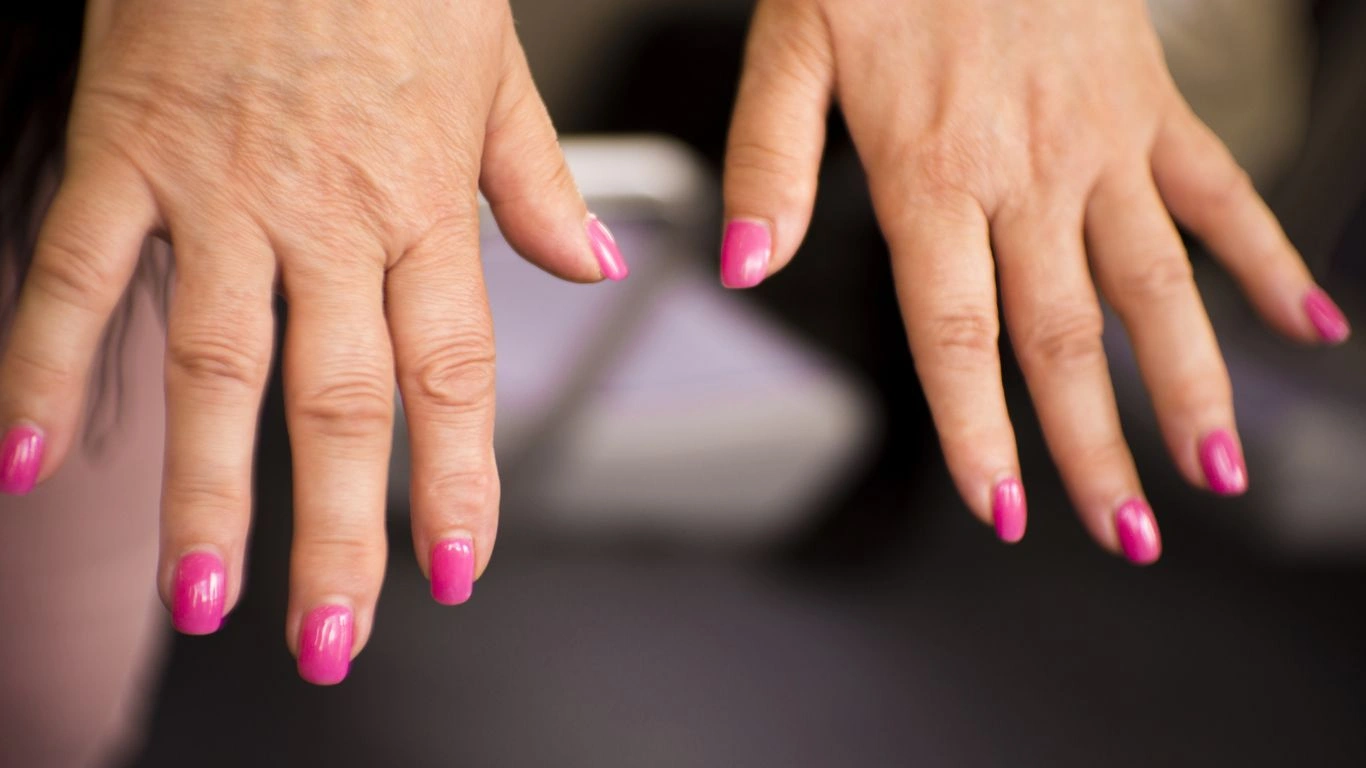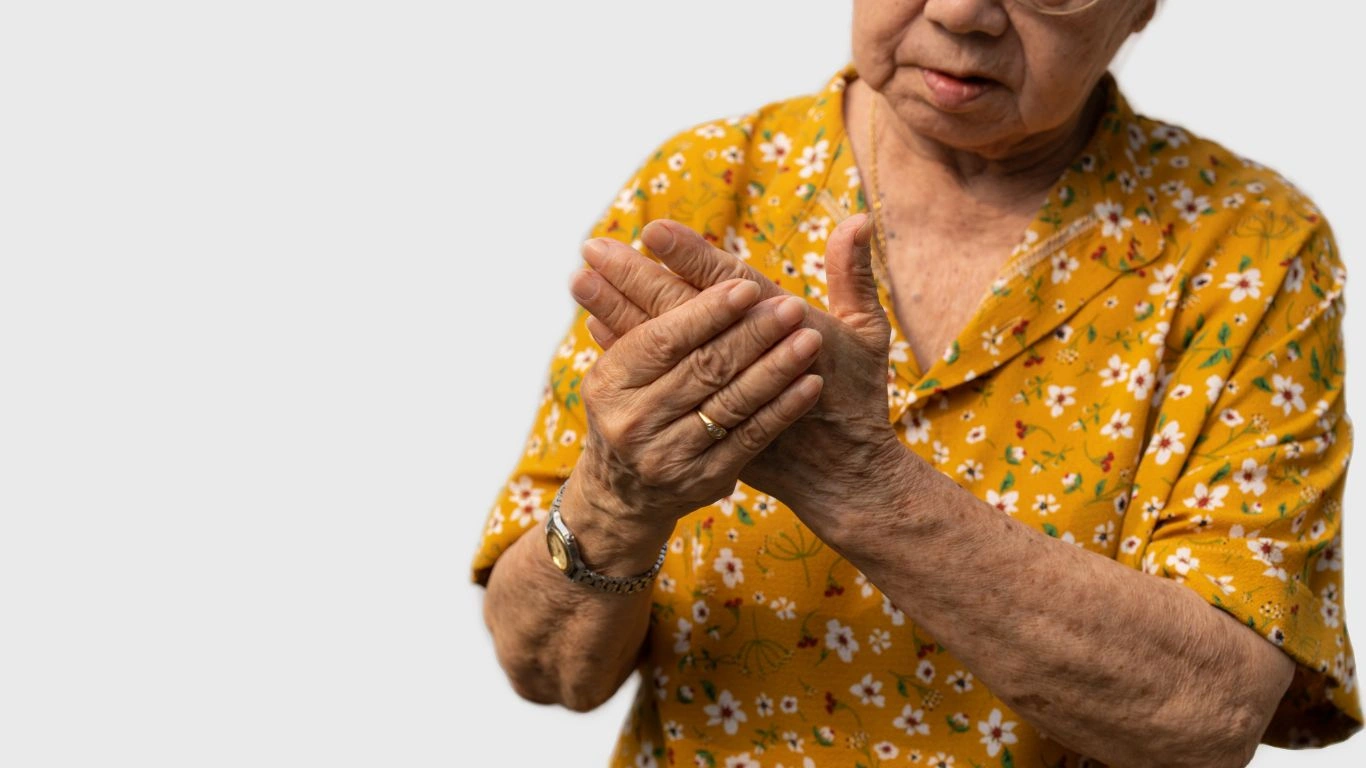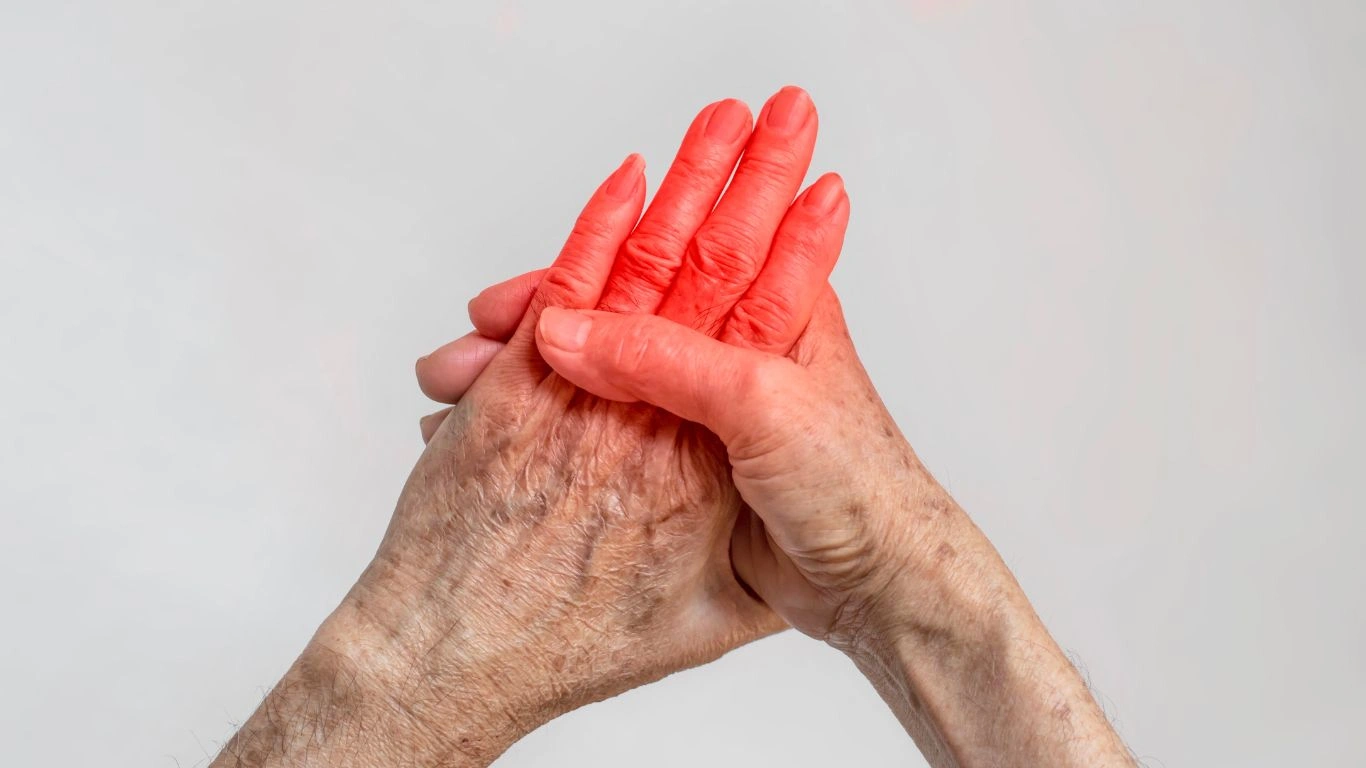How Stress Worsens Rheumatoid Arthritis Flare-Ups: What You Can Do
If you’ve ever had a patient sit across from you, eyes wide with frustration and pain, asking, “Why am I flaring up again when I haven’t missed a dose of my meds?”, you’re not alone. I’ve heard this more times than I can count. And one of the most overlooked triggers I often find myself pointing to is stress. Yes, how stress affects rheumatoid arthritis flare-ups is a topic that doesn’t get the spotlight it deserves—but it should. As a Rheumatology Nurse Practitioner, I’ve seen firsthand how emotional strain can light a fire under RA symptoms. Let’s dig into this complex, often underestimated connection that can make or break disease control for so many people.
Why Stress is a Hidden Driver Behind RA Flare-Ups

When people think about rheumatoid arthritis, their minds usually jump to joint pain, inflammation, or those gnarly morning stiffness episodes. But stress? Not usually top of mind—and that’s part of the problem. We’re trained to look for physical causes, like medication changes or dietary missteps. But psychological stress? That sneaky beast can quietly sabotage even the most well-managed treatment plan.
I’ve seen it happen time and again: a patient’s lab markers look great, their medication regimen is solid, and yet, they come in flaring worse than ever. What changed? They went through a divorce. Lost a job. Became a caregiver overnight. Life happened, and their body responded.
The Science: Cortisol, Inflammation, and Autoimmunity
Here’s the thing—stress isn’t just in your head. It kicks off a physiological domino effect that can stoke the fires of inflammation. Chronic stress leads to prolonged release of cortisol, our body’s primary stress hormone. In theory, cortisol should dampen inflammation. But in people with RA, that regulation system doesn’t always work properly.
Instead of calming the immune system down, stress can create a kind of hormonal confusion. The immune response becomes hyperactive, mistakenly attacking the joints. This means more swelling, more stiffness, and yep—you guessed it—more flare-ups.
What Patients Tell Me: Real Talk from the Exam Room
This part gets personal. One of my long-term RA patients, let’s call her Karen, came in absolutely at her wit’s end. She had been stable for over a year, and then boom—two weeks into dealing with her teenager’s mental health crisis, her knees and wrists swelled up like balloons. She looked at me, exhausted, and said, “I didn’t know stress could actually do this to my body.”
Another patient, James, a stoic military vet, kept minimizing the stress of transitioning to civilian life. He flared so severely that we had to add a biologic to his regimen. Once he started opening up and dealing with his anxiety, his symptoms improved dramatically—without needing to escalate meds again. These aren’t isolated stories. These are everyday realities in rheumatology practice.
Common Stress Triggers That Can Worsen RA

Stress doesn’t always show up wearing a name tag. Sometimes, it sneaks in through the side door of life. Here are some common culprits I see in clinic:
- Major life changes: Moving, divorce, new job, or loss of a loved one.
- Chronic caregiving: Taking care of a sick parent, child, or partner.
- Workplace burnout: Long hours, toxic environments, or unrealistic expectations.
- Financial strain: Medical bills, job loss, or debt.
- Loneliness and isolation: Especially common in older RA patients.
Any of these can elevate stress levels and nudge your immune system into overdrive. It’s like adding gasoline to a simmering fire—one that doesn’t need any help burning brighter.
The Mind-Body Connection: Not Just Woo-Woo Medicine

Look, I get it—some folks roll their eyes at the idea of the mind-body connection. But the evidence is real and growing. Stress management isn’t about sitting on a mountaintop chanting “om” (although hey, if that works for you, go for it!). It’s about recognizing that your mental state can have direct, measurable impacts on your disease process.
Studies show that people with RA who engage in regular stress-reducing activities—whether that’s therapy, yoga, mindfulness, or even regular walks—tend to have fewer and less severe flare-ups. It’s not about eliminating stress entirely (impossible!), but rather learning how to process it in healthier ways.
What I Recommend to My RA Patients Dealing with Stress
- Start tracking flare patterns: Use a journal or app to note what was happening emotionally around each flare.
- Prioritize self-care: Not just bubble baths—think sleep hygiene, hydration, boundaries, and saying no when needed.
- Therapy isn’t taboo: Mental health support should be part of any chronic disease management plan.
- Consider relaxation techniques: Guided breathing, progressive muscle relaxation, or apps like Calm or Insight Timer.
- Talk to your provider: Sometimes, we need to adjust meds or support systems during high-stress periods. Don’t wait.
The more you tune into your body, the earlier you can catch a flare brewing—and maybe, just maybe, stop it in its tracks before it takes over your life again.
How to Break the Cycle: Managing Stress to Tame RA Flare-Ups

Alright, now that we’ve pulled the curtain back on how stress affects rheumatoid arthritis flare-ups, let’s talk solutions. Because here’s the good news: you’re not powerless. Managing stress doesn’t mean living in a bubble or pretending life doesn’t get messy—it means having tools in your back pocket to soften the blow.
In my clinic, I always tell patients: “You can’t always control the storm, but you can absolutely build a better umbrella.” That umbrella might look a little different for each person, but the goal is the same—protect your joints, your peace, and your overall health.
Creating a Personalized Stress Toolkit
There’s no one-size-fits-all approach here. What calms one person might stress another out (ask any introvert how they feel about group yoga). I like to work with patients to build a stress-management toolkit that feels natural, sustainable, and non-judgmental.
- Mindfulness techniques: I had a patient who resisted meditation for years—said she couldn’t sit still. We found an audio-guided breathing exercise she could do while washing dishes. It clicked. Now she swears by it during stressful weeks.
- Low-impact movement: Gentle yoga, tai chi, or even short walks can help regulate stress hormones while keeping joints mobile.
- Creative outlets: Journaling, painting, baking—whatever keeps your hands and mind engaged without overstimulation.
- Digital boundaries: Cutting back on doom-scrolling and carving out quiet time can make a big difference in stress levels (and sleep quality, which also impacts RA).
And no, you don’t need to overhaul your entire lifestyle overnight. Just picking one of these and sticking with it for a few weeks can create a ripple effect.
Therapeutic Support: Why Mental Health Isn’t Optional

Look, I’ll be real with you—RA is a lot. And trying to carry that weight on your own only makes it heavier. That’s why I always recommend integrating some kind of mental health support into your care plan.
Therapy isn’t about being “broken.” It’s about learning how to ride the emotional waves that chronic illness throws at you. And let’s not forget the impact of unprocessed trauma, unresolved grief, or long-term anxiety on the immune system. I’ve seen patients gain more control over their flares just by finally addressing the emotional baggage they didn’t even realize was holding them back.
Options Worth Exploring:
- Cognitive Behavioral Therapy (CBT): Evidence-based and great for breaking the cycle of negative thinking.
- Group support: Online or in-person, peer support groups help normalize what you’re going through.
- EMDR or trauma-informed care: Especially if flares seem to correlate with emotional triggers from the past.
One of my patients, Marie, said that talking to a therapist felt like “getting the junk out of the attic.” Her flares didn’t vanish, but they stopped ambushing her out of nowhere. She became more in tune with her stress signals and more confident in her ability to respond.
Nutrition, Gut Health, and the Stress-Inflammation Loop

Here’s something that doesn’t get talked about enough: the gut-brain-immune axis. Fancy phrase, but it boils down to this—your gut health affects your stress resilience and your inflammation levels. And that matters big time in RA.
When stress is high, cortisol levels mess with your gut lining, potentially leading to “leaky gut,” dysbiosis (gut bacteria imbalance), and—you guessed it—increased inflammation. Add that to an already overactive immune system, and it’s a recipe for disaster.
Now, I’m not suggesting kale smoothies will cure RA (I love a kale moment, but come on). However, making gut-friendly food choices can help buffer the effects of stress:
- Probiotic-rich foods: Yogurt, kefir, sauerkraut, kimchi—easy gut support.
- Fiber-packed meals: Think oats, lentils, chia seeds, berries—these feed the good bugs.
- Anti-inflammatory ingredients: Turmeric, ginger, olive oil, leafy greens.
- Limit sugar and processed foods: These can stoke inflammation and mess with your mood stability.
I often remind my patients: “You don’t have to eat perfectly. Just eat in a way that helps your body fight, not fuel, the fire.” And hydration? So underrated. Dehydration can worsen fatigue, joint pain, and even mental fog—things we definitely don’t need more of during a flare.
Small Daily Habits That Make a Big Difference
Managing stress to manage RA isn’t about huge transformations. It’s about micro-habits—tiny choices that add up. Here are some that I live by and suggest often:
- Five-minute resets: Pause, breathe, and reset when you feel the overwhelm creeping in.
- Morning sunlight: A short dose of natural light helps regulate cortisol and circadian rhythms.
- Digital detox evenings: Unplug an hour before bed. Your nervous system will thank you.
- Gratitude journaling: Doesn’t have to be deep—just jot down three things that didn’t suck today.
My personal trick? I keep a post-it note on my bathroom mirror that says, “Breathe first.” Sounds silly, but during stressful mornings, that little reminder has kept me from spiraling. And if it works for me, it might work for you too.
Because at the end of the day, our bodies are always talking to us—especially when we live with something like RA. The question is: are we listening?
Long-Term Coping Strategies for Stress and RA Flare Prevention

If you’ve made it this far, you already know stress can wreak absolute havoc on rheumatoid arthritis. But let’s be real—stress isn’t something you “fix” once and never deal with again. It shows up again and again, in different forms, at different life stages. The trick isn’t avoiding stress altogether (that’s a losing game), but learning how to live *with* it—without letting it hijack your health.
I always tell my patients: You don’t need to chase some perfect Zen lifestyle. What you need is a sustainable rhythm—a way of living that supports your joints, your nervous system, and your mental load over the long haul.
Sleep: The Unsung Hero of Autoimmune Health
If I had a dollar for every time a patient underestimated the power of sleep, I could buy my whole clinic standing desks. Sleep isn’t a luxury—it’s therapy. Your body does some of its best inflammation control and immune regulation while you’re asleep.
But when stress ramps up, sleep often gets worse—leading to more flares, which cause more pain, which disrupts sleep even more. It’s a vicious cycle. So what’s the move?
- Stick to a bedtime: Your brain loves routine. Go to bed and wake up at the same time daily—even on weekends.
- Wind down with intention: No screens an hour before bed. Try a book, gentle stretches, or warm bath instead.
- Keep it dark and cool: Blackout curtains and 65-67°F temps work wonders for deep sleep quality.
One of my patients started wearing blue-light blocking glasses and using a weighted blanket. Her sleep score (she tracked it with a smartwatch) improved in a week, and her morning stiffness cut in half. I’m not saying it’ll cure RA—but better sleep is one of the easiest, cheapest ways to support your immune system long-term.
Social Support: The Quiet Armor Against Flares

You know what’s one of the most potent buffers against stress-induced flares? Other people. I mean the real ones—the kind you can vent to, laugh with, cry in front of without shame. Chronic illness can be isolating. I see it all the time. And isolation doesn’t just impact mental health—it increases inflammatory markers too. That’s wild, but true.
Whether it’s a weekly coffee date, a text thread with your bestie, or a Facebook group full of RA warriors, staying connected matters. Social connection helps lower cortisol, improve mood, and give you perspective. I’ve watched patients’ flares ease up simply because they finally felt heard and seen.
One woman I treated joined a local community garden group. She said it gave her a reason to get outside, move her body, and engage with people who didn’t only see her as “the person with RA.” Her stress levels dropped—and so did her flare frequency. Coincidence? I don’t think so.
Pets Count, Too
Yes, fur babies are family. Studies show that owning a pet can reduce blood pressure, decrease stress hormones, and increase oxytocin—the feel-good hormone. Whether it’s a dog, cat, or even a therapy rabbit, animals provide emotional regulation in ways humans sometimes can’t.
For those curious, check out resources like PetMD or AKC for pet care ideas, especially if you’re considering a low-maintenance pet for companionship and stress relief.
Holistic Lifestyle Tweaks That Actually Help
Let’s zoom out for a second. What does a day-to-day RA-supportive lifestyle look like, beyond just managing flares? These are the small, steady shifts that add up over time:
- Anti-inflammatory eating: Think Mediterranean-style—olive oil, fatty fish, nuts, and colorful veggies. Nothing too fussy, just real food.
- Gentle movement: You don’t need to crush it at the gym. Regular stretching, light resistance bands, or aquatic therapy can keep joints happy.
- Smart supplements: Omega-3s, vitamin D, and magnesium can support inflammation control. But always check with your provider.
- Limit alcohol & processed foods: Both can worsen inflammation and disrupt sleep. Doesn’t mean you can’t enjoy life—just keep it balanced.
Honestly, I’ve had better success getting patients on board with small, doable tweaks than dramatic overhauls. We’re not aiming for perfect—we’re aiming for better, consistently.
Trust Your Body, Track Your Patterns
As a Rheumatology NP, one thing I can’t emphasize enough: become the expert on your own body. No one else lives in your skin. You know when something’s off. Keep a flare diary, log your stress levels, note your sleep and food choices. Patterns will emerge.
Apps like MyRA, Symple, or even a plain old notebook can help you connect the dots between your emotional state and your physical symptoms. Knowledge isn’t just power—it’s protection.
Over time, you’ll get quicker at spotting early warning signs. And when stress does hit (because life), you’ll be better prepared to cushion the blow.
Final Thoughts from the Clinic
I wish more providers talked openly about this stuff. In the exam room, I’ve seen time and time again: stress doesn’t just affect mood—it directly impacts how RA shows up in the body. The more we name it, the more we can manage it. That’s what this whole article’s about—taking control back, even when RA tries to take over.
And hey, don’t do it alone. Bring it up with your rheumatologist, NP, or therapist. There’s no medal for struggling silently.
References
Disclaimer
This article is intended for informational and educational purposes only and does not substitute medical advice. Please consult with your healthcare provider or a licensed Rheumatology specialist for personalized treatment recommendations related to rheumatoid arthritis and mental health management.

Tarra Nugroho is a dedicated Nurse Practitioner with a strong foundation in family and preventive care. She brings both compassion and clinical expertise to her practice, focusing on patient-centered care and health education. As a contributor to Healthusias.com, Tarra translates medical knowledge into clear, empowering articles on topics like women’s health, chronic disease management, and lifestyle medicine. Her mission is simple: help people feel seen, heard, and informed—both in the clinic and through the content she creates. When she’s not caring for patients, Tarra enjoys weekend hikes, plant-based cooking, and curling up with a good health podcast.







